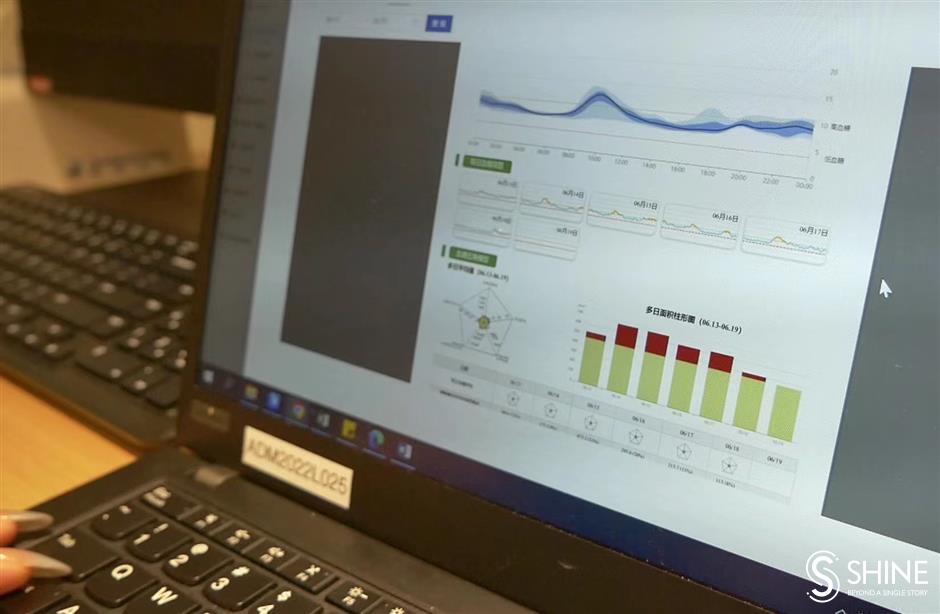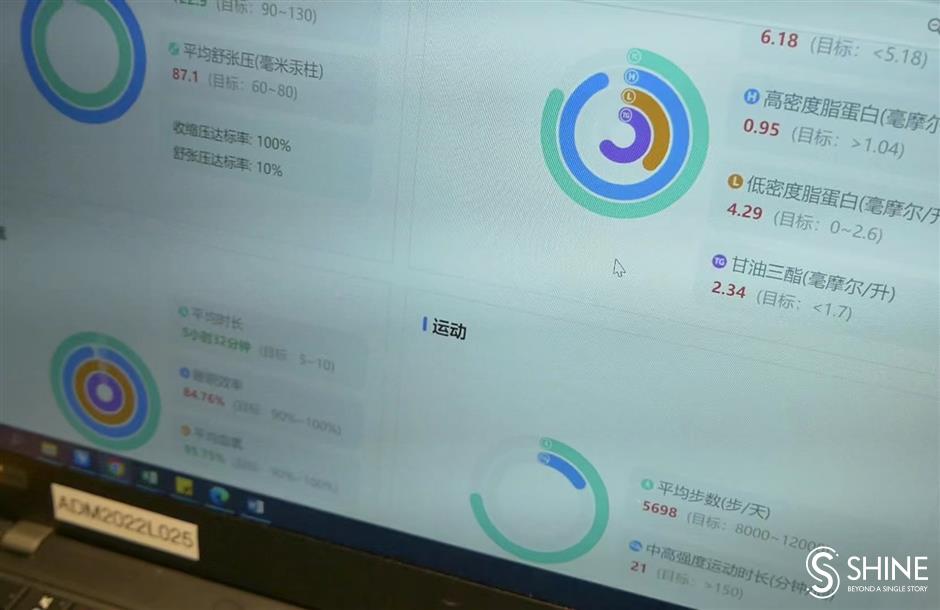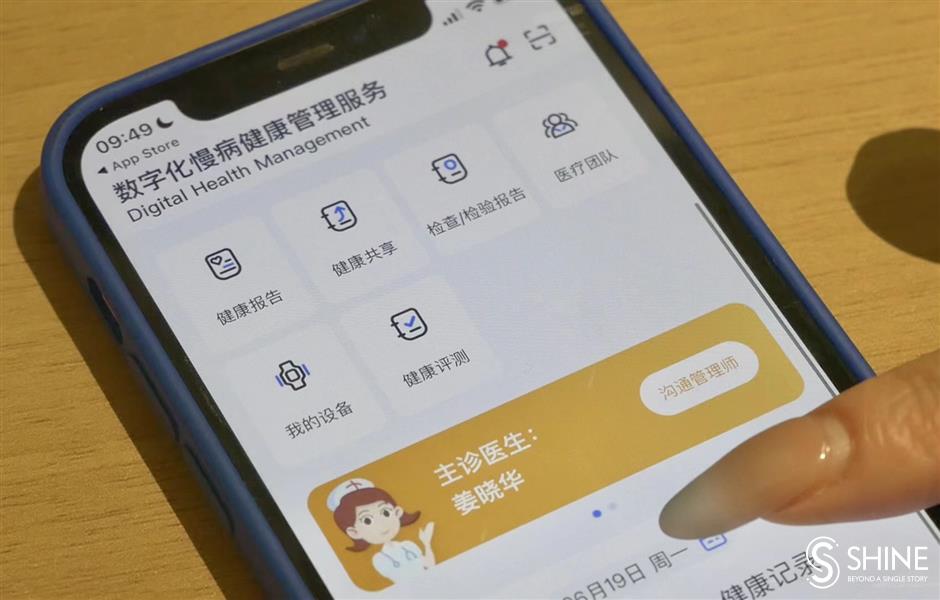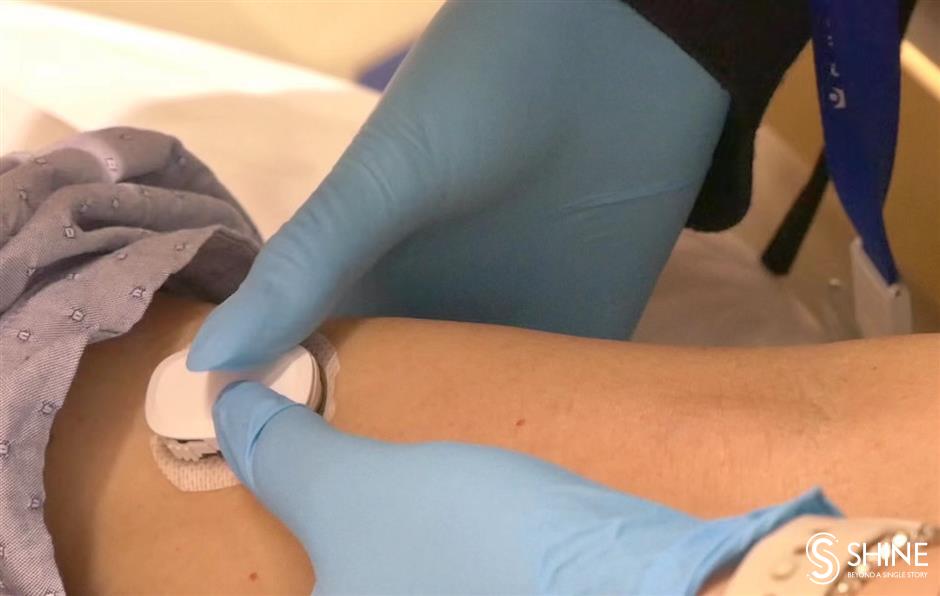政府新闻
智慧医药帮助管理慢性疾病 2023-06-26
The incidence of chronic diseases such as diabetes, hypertension and hyper-lipidemia keeps rising.
There are more than 300 million people with cardiovascular diseases in China and the average age of patients is becoming younger, imposing serious burdens on individuals, families and the public health system.
Chronic disease management is not an easy task. A patient usually isn't aware of his or her condition until it becomes serious.
The process of chronic disease management is long and slow.
"The biggest demand of chronic disease patients is to manage their disease and improve treatment effects," said Dr Kathy Shi from SinoUnited Health. "How to achieve it is not easy, so we have been looking for new and effective methods. Digital medicine provides a solution."

The digital platform shows a patient's data.
SinoUnited Health has developed an innovative chronic disease management platform based on "data to decision" theory.
Through wearable devices, implanted medical devices, a central monitoring platform and a multidisciplinary medical team, doctors are able to provide more targeted, consecutive, individualized and stricter chronic disease management.
Patients are now active in treatment management.

High and low density lipoprotein is measured.
Chronic disease is a serious issue in China. Patients with diabetes have increased from 90 million to 140 million in the past decade.
And one-fourth of Chinese have hypertension and 40 percent of Chinese adults have hyper-lipidemia. The rise of cholesterol is closely related to the rise of heart attack and stroke.
"These are all alarming figures, requiring higher awareness of doctors and patients," Shi said.
"In fact, proper management is the most useful and economic method. Every 1mmol per liter reduction of low density lipoprotein cholesterin can drop the risk of negative cerebro-cardiovascular events within five years by 22 percent.
"A 2mmol per liter reduction can drop the risk by 39 percent."
She said the core of medical diagnosis and treatment is basically a process from data to decision, which means doctors make decisions and judgement based on various data.
Detailed, consecutive and comprehensive data is very meaningful to doctors for making accurate decision.

Patients and doctors have quick access to the digital health management platform.
"Our system provides various wearable and implanted devices to collect data like blood pressure and glucose levels for long-term monitoring and analysis," she said.
"An intelligent headquarter run by health management professionals will conduct real-time inspection of the data and trigger a warning if any abnormal data or alarming tendency is detected.
"Then we will contact the patient and arrange online and offline consultation and medical service in accordance with the situation."

A patient receives an implanted device for real-time glucose level monitoring. All data will be transformed to the platform.
Chronic disease patients need professional and quick medical instruction, and the digital system meets such demand.
"Whenever my data on blood pressure and glucose level shows an unhealthy tendency, nutritionists and relevant doctors will contact me in time to provide professional suggestions and carry out intervention," said a patient. "I can see the change and tendency of all my data on the cellphone. It makes me feel secure."

Wearable and implanted medical devices monitor patient chronic disease data closely.
Doctors said a big challenge of chronic disease management is patients' poor compliance.
"The digital platform can visualize all the data," said Dr Jiang Xiaohua, director of chronic disease management project at SinoUnited Health.
"It can encourage patients to actively be involved in and cooperate with doctors on disease management. Lifestyle instruction and detailed guidance and education from experts online also help patients adopt healthy habits."
Source: Shanghai Daily
